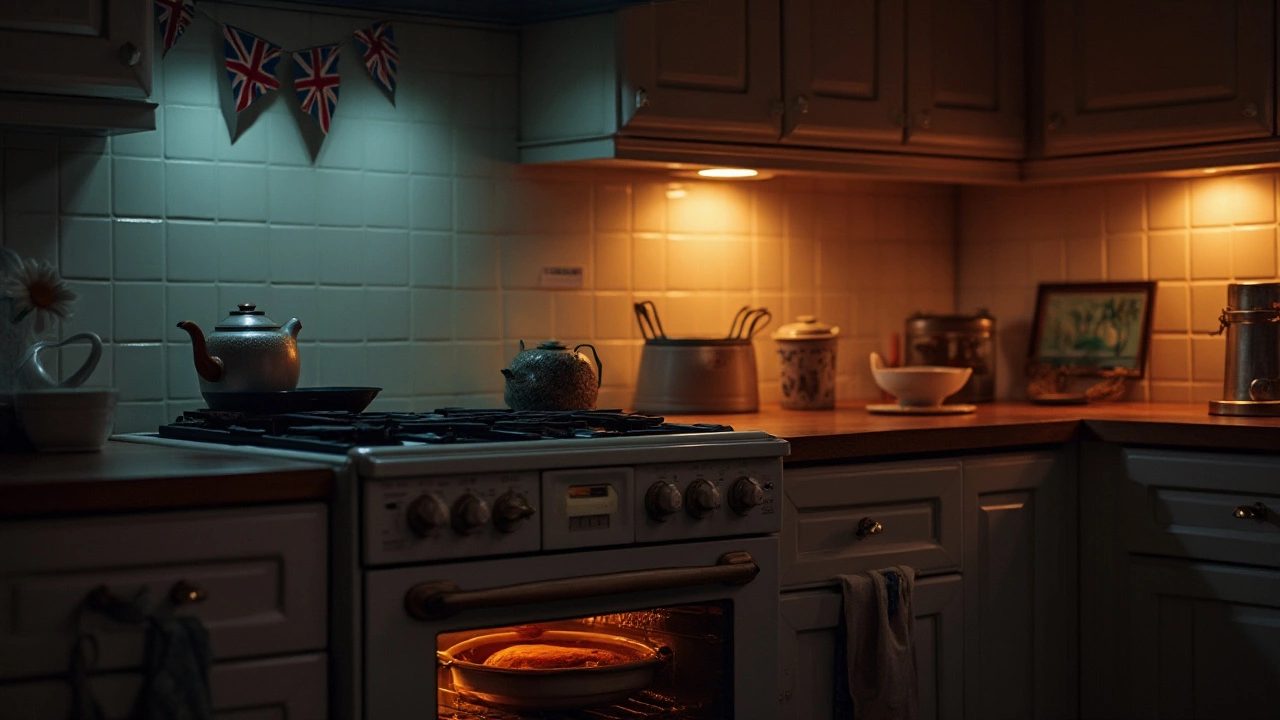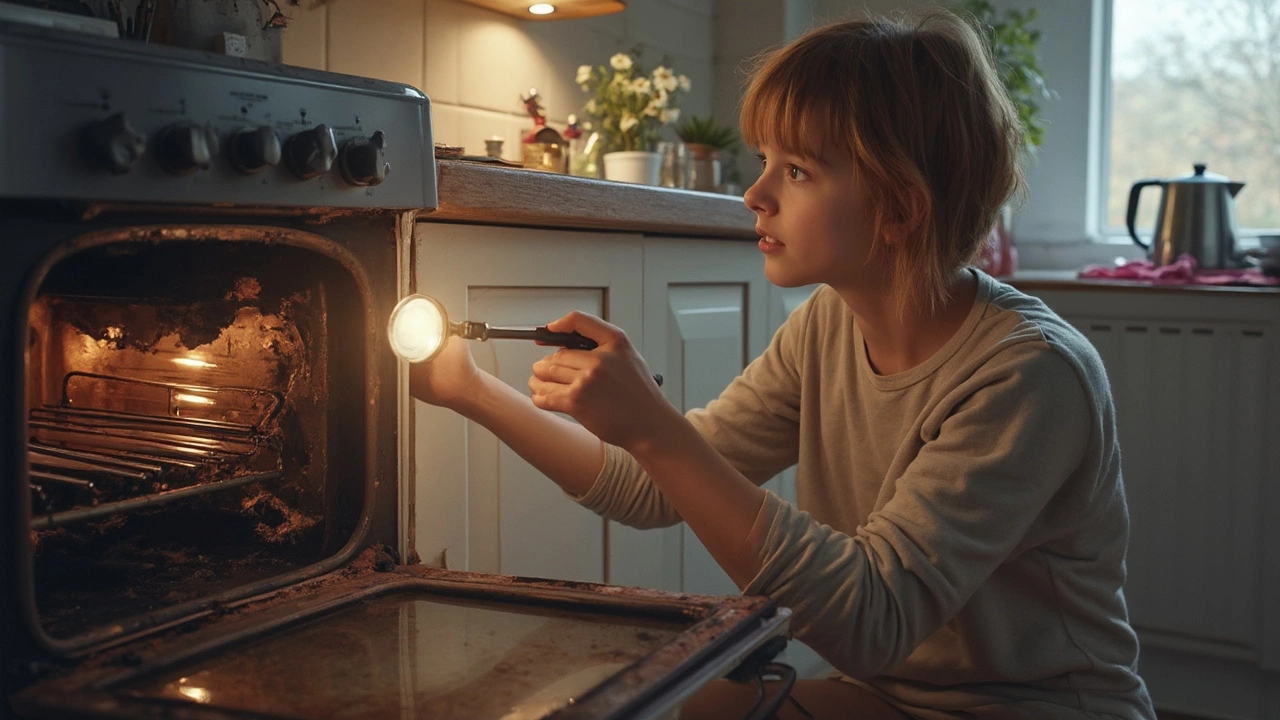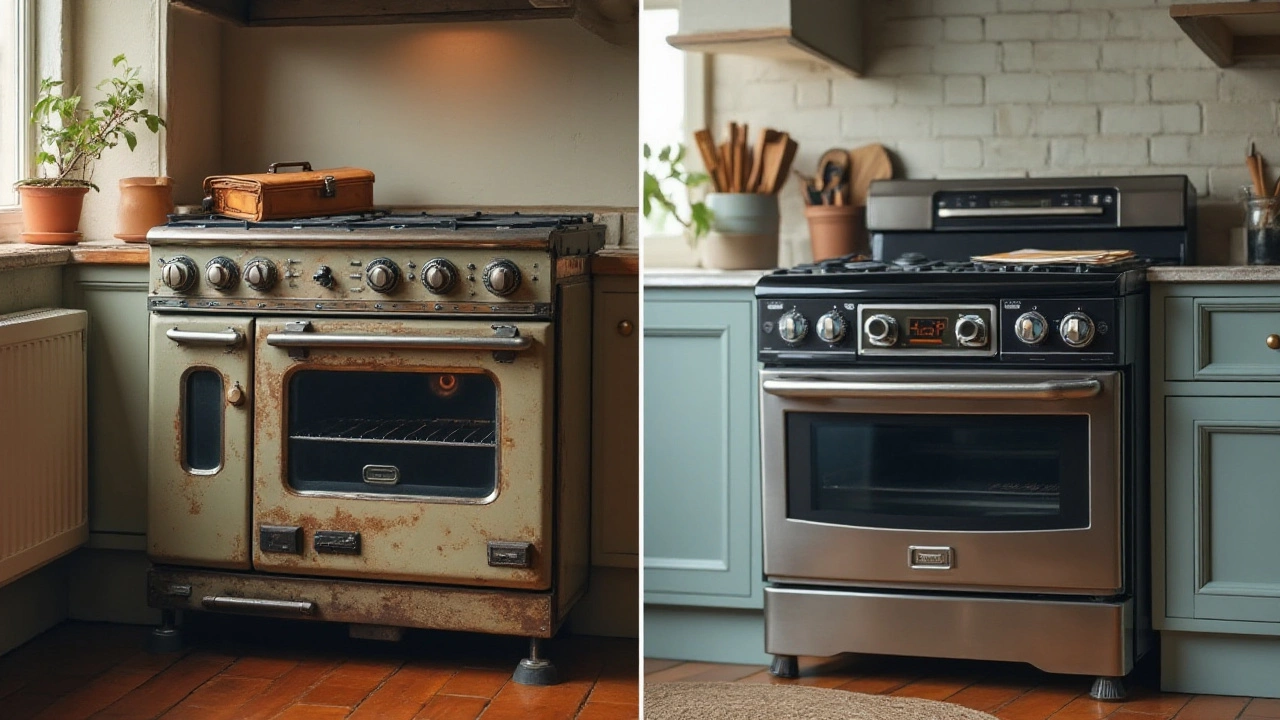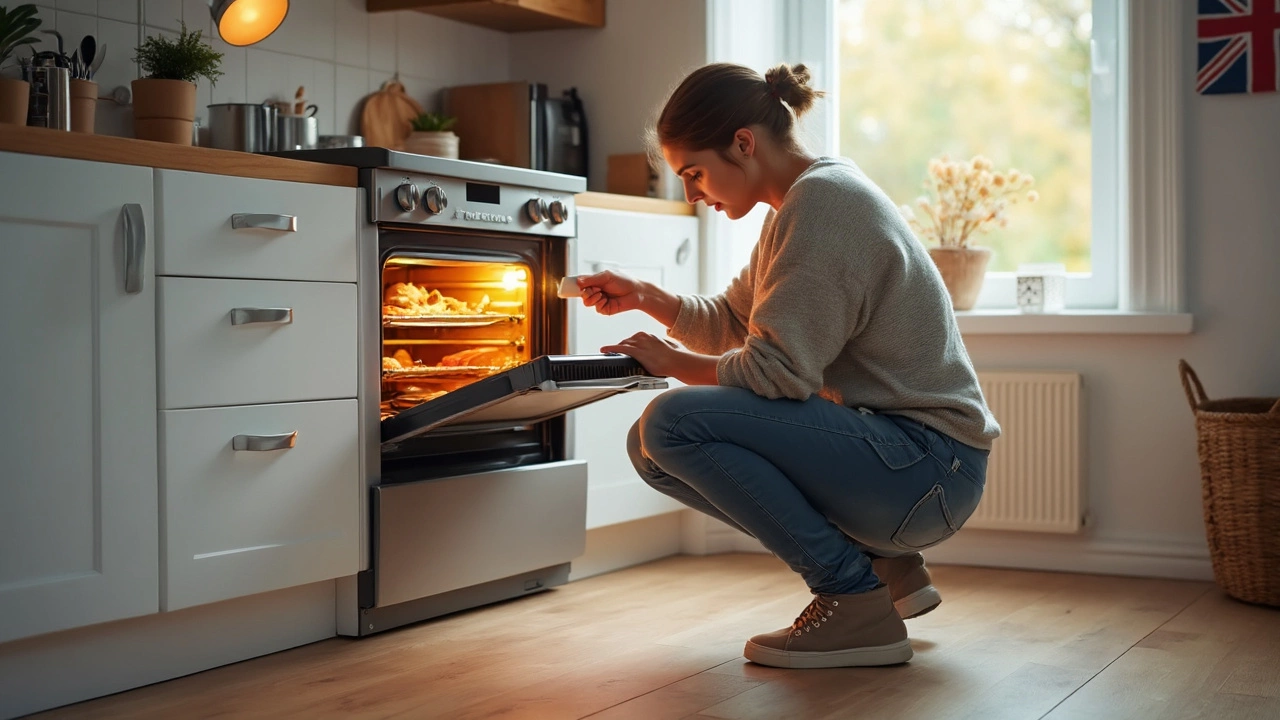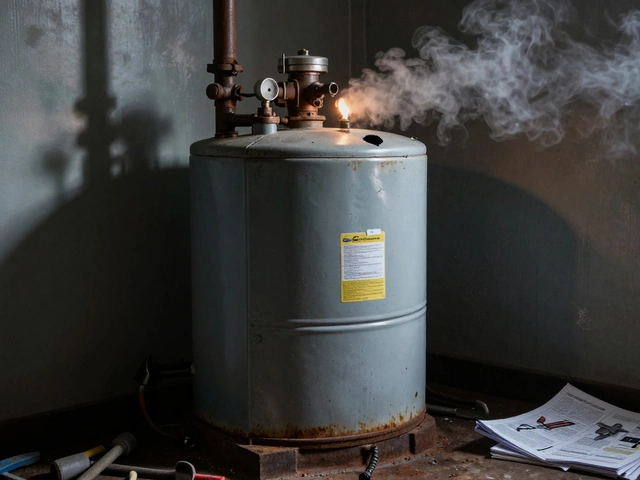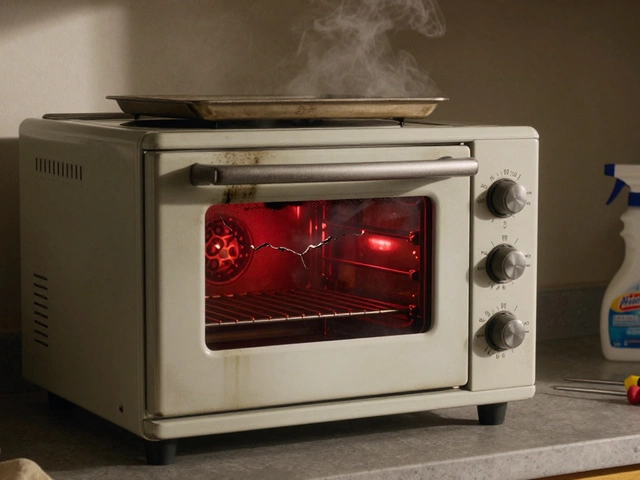Imagine a world where you could just pop your dinner into the oven and not worry about shutting it off. Sounds convenient, right? But leaving your electric oven on all night isn't as harmless as it might seem. It could lead to higher risks of accidents and even affect your electricity bills.
Often overlooked in our daily hustle, kitchen appliance safety is something we usually remember when something goes wrong. But, knowing the risks and taking the right precautions with your electric oven doesn't require rocket science knowledge. In this piece, let's dig into why it can be problematic to leave an oven on overnight and what steps you can take to make sure your kitchen remains a haven.
- Potential Risks of Leaving Your Oven On
- Safety Tips for Oven Use
- Energy Consumption Impact
- Maintenance Tips for Longevity
- What to Do in Case of Emergency
Potential Risks of Leaving Your Oven On
Leaving an electric oven on overnight might not be on top of your list of worries, especially after a long day when getting some shut-eye feels most crucial. But this seemingly innocent oversight can bring about significant dangers. First and foremost, the risk of a kitchen fire is greatly heightened. Electric ovens can malfunction, and this malfunction can sometimes lead to fires. Statistically speaking, the National Fire Protection Association reports that cooking equipment, including ovens, is a leading cause of reported home fires and fire injuries in the United States. The terrifying part of leaving an oven on overnight is that a fire might start while everyone is fast asleep, reducing the chance for quick intervention.
Moreover, apart from fire hazards, there's also the potential risk associated with carbon monoxide production. Electric ovens, although typically not known for significant carbon monoxide emissions like their gas counterparts, can produce this colorless, odorless danger during high-heat cycles. Prolonged exposure to carbon monoxide, especially during sleep, can lead to serious health issues, or worse. That’s a risk not to take lightly. Even small, persistent problems—like failing to open the oven door post-cooking—can build up moisture in the kitchen, affecting the air quality, which is not something many think about.
According to the U.S. Consumer Product Safety Commission, several thousand injuries result from house fires each year, highlighting the importance of oven safety and maintenance.
Electric ovens also consume a lot of energy when left on for extended periods. Not only does this contribute to an unwelcome surge in your energy bill, but it also increases your carbon footprint unnecessarily. Let’s not forget the impact on wear and tear; any appliance, especially one as heat-intense as an oven, can suffer from reduced lifespan with improper use. This can lead to expensive repairs or even premature replacement costs. The simple habit of double-checking if you’ve turned off the oven before bed can save not just money but also peace of mind.
Finally, there’s the consideration for curious children or pets—it only takes a moment for a curious child to touch an overheated oven or for a pet to brush against it. In a practical sense, while most of us don’t think of these hazards daily, it’s always better to prioritize safety. So, making a habit out of checking your oven before you call it a night could prevent potential unintended consequences, ensuring the heart of your home remains a safe and sound haven.
Safety Tips for Oven Use
When it comes to kitchen safety, ensuring your electric oven is used correctly and responsibly can make a substantial difference in preventing accidents. Start with the basics: know your oven's settings and capabilities. This might sound trivial, but familiarity with your appliance can prevent many issues. People often rely on automatic shut-off features, assuming these are foolproof. Yet, not all models have them, or they might fail. It's best to manually shut off the oven when you're done. Placing an alarm or reminder on your phone can be immensely helpful in remembering to turn it off.
Keeping the area around your oven clear at all times is also crucial. Any flammable materials, like dish towels or paper, should be stored at a safe distance. Regular cleaning is key to maintaining safety as well. Grease build-up inside the oven can become a fire hazard if not cleaned regularly. Scrubbing down the racks and the interior after a spill is not just for cleanliness; it significantly reduces risks. Don't forget to vacuum or dust the ventilation openings to prevent clogging.
Being cautious with the cord and plug is another safety measure often overlooked. Checking them periodically for signs of wear and replacing them promptly can prevent electric shocks or fires. In periods of intense usage, be mindful of overloading your electrical circuits. An overloaded circuit could trip your home’s breakers, leaving you without power. If you often entertain or cook for large groups, asking an electrician to assess your circuit’s capacity could be beneficial. As the National Fire Protection Association (NFPA) states, "keeping cords and plugs in good working condition can decrease risks around the kitchen."
"An ounce of prevention is worth a pound of cure." - Benjamin Franklin
Given the rise of smart technology, many modern appliances now offer connectivity features for remote monitoring. If you're tech-savvy, consider using apps to check in on your cooking from another room. This added layer of oversight could lessen the chances of leaving an oven unattended. It’s also a brilliant way to keep tabs on children or others who might not be as familiar with the appliance's operation. While technology is handy, nothing beats the power of simple vigilance and attentiveness.
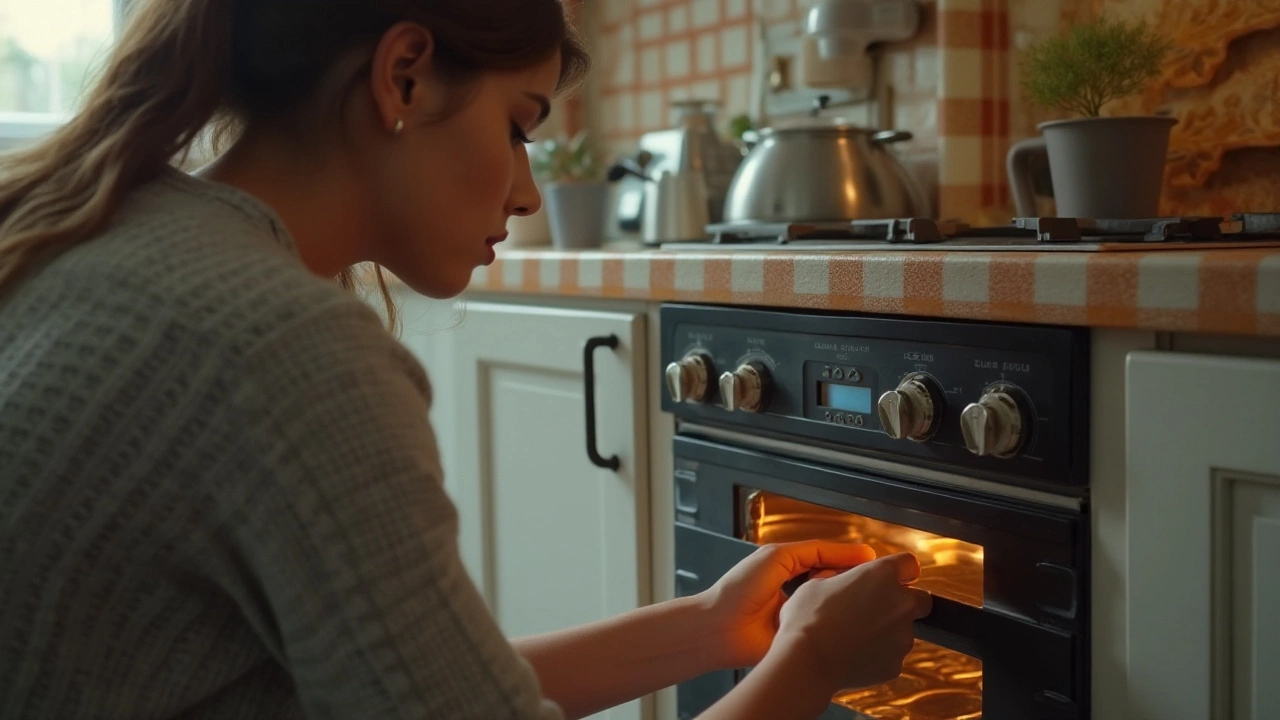
Energy Consumption Impact
In our fast-paced world, conserving energy should be high on the priority list, both for cost savings and environmental responsibility. When it comes to electric ovens, many people underestimate how much power these appliances can consume. Leaving an electric oven on all night can dramatically affect your household's energy consumption. While the oven might be on for what feels like a short, twelve-hour overnight stretch, it can lead to significant energy usage, impacting both your wallet and the planet.
To break it down: electric ovens consume energy continuously when in use. Most models operate at a power range between 2,000 to 5,000 watts, which means they can draw plenty of electricity just sitting there cooking or keeping things warm. Imagine this consumption chugging away through the night, with no one benefitting from it. Now contrast that with a typical lightbulb using just 8-15 watts on average—it's quite an eye-opener in terms of what your electric oven might be costing you over time.
Energy-saving tips are always a good idea, and it's wise to consider alternatives or practices to mitigate this consumption. For instance, modern ovens often come equipped with timers and automatic shut-off features to ensure you don’t forget them in your nighttime rush. Investing in an oven thermometer can also help you gauge more accurately when your meals are done, potentially saving energy that would otherwise be wasted. Using alternative cooking methods, such as slow cookers or pressure cookers, might also be more energy-efficient for overnight cooking.
Whether or not you deeply consider your environmental impact, energy wastage translates to money wasted, too. Recognizing the energy draw of leaving an oven on can help you plan meals better and tech into more energy-saving appliances. This foresight not only benefits your immediate lifestyle but also contributes to broader initiatives like reducing carbon emissions. Many consumers have become more aware, thus energy-efficient ratings have become a sought-after feature for purchasing decisions.
According to Energy.gov, "On average, more than 50 percent of your bill is driven by the appliances and electronics you regularly use." This reinforces the idea that making smarter choices about when and how we use devices like electric ovens can make a substantial impact—not just environmentally but financially as well.
An intriguing aspect of energy usage can also be tracked by smart plugs or home energy monitors. These devices help break down exactly where your electricity is going, and they often reveal surprising insights into personal appliance usage patterns. Tracking such data may seem geeky, but it's a practical approach to manage your home's energy consumption more effectively. At the end of the day, understanding and managing energy consumption isn't just for policy makers or environmentalists; it's a crucial part of everyday living, manifesting in our homes through simple actions and conscious choices.
Maintenance Tips for Longevity
Ensuring your electric oven functions efficiently for years involves more than just using it correctly. Routine maintenance can significantly extend the life of your appliance and maintain safety in your kitchen. Start by cleaning the oven regularly to prevent grease build-up, which can not only affect cooking efficiency but also pose a possible fire hazard. Utilizing a mixture of vinegar and baking soda can create an effective and non-toxic oven cleaner. Simply apply the paste to grimy areas, let it sit for a few hours, and then wipe clean with a damp cloth.
It’s crucial to check seals and gaskets periodically. These components are essential for maintaining the heat within the oven. If the gasket or seal is faulty, it could lead to heat escaping, which will not only increase cooking times but also lead to higher energy bills. Test the seal by closing the oven door on a piece of paper. If you can pull the paper out easily without resistance, it might be time to replace the seal.
Regular inspection of oven elements is also necessary. The heating elements should be free from any cracks or noticeable damages. In case your oven doesn't seem to be heating as effectively as before, it might be due to a faulty heating element. Replacing these requires only basic understanding, but it’s always best to consult the manual or bring in a professional if you’re unsure.
"Keeping kitchen appliances well-maintained not only prolongs their life but also ensures greater efficiency and safety," says Kitchen Appliances Expert, John Matthews.
Oven ventilations and fans should not be neglected either. Often clogging with dust and debris, a fan that isn’t working properly can affect how well an oven cooks. Cleaning these ventilations every six months can maintain effective airflow and keep the appliance running smoothly.
Annual Professional Check-Up
Consider an annual professional check-up as part of your regular maintenance routine. A professional can detect potential problems that one might overlook during regular cleaning and DIY maintenance. They can also fine-tune the appliance, checking electrical connections, the thermostat's accuracy, and ensuring that the oven complies with safety standards.
Finally, using kitchen appliances correctly plays a big part in their longevity. Remember not to overload the oven racks, as doing so can strain oven components, leading to quicker wear and tear. By incorporating these simple but crucial maintenance practices, you can enjoy a safer and more efficient kitchen environment.
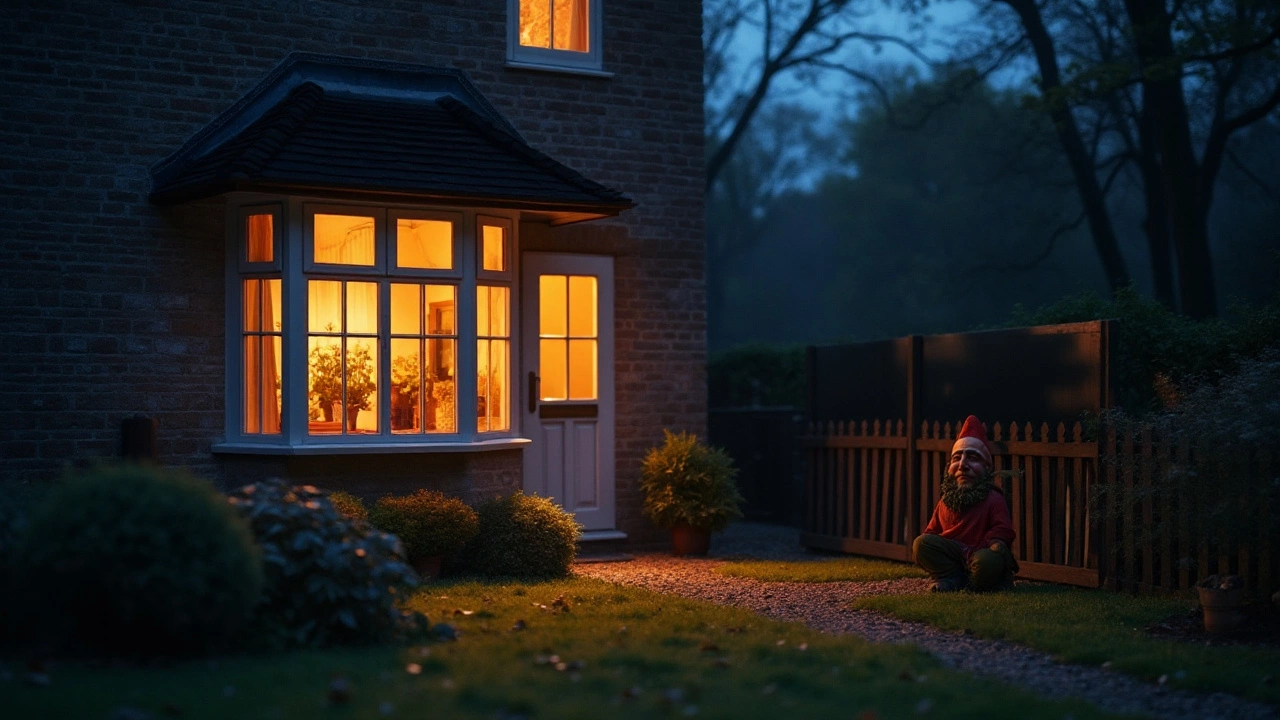
What to Do in Case of Emergency
Whenever there's an emergency involving an electric oven, it's crucial to remain calm and act swiftly. The immediate actions you take can prevent a small issue from escalating into a full-scale disaster. Begin by identifying the exact nature of the problem. Is there smoke coming out of the oven, or have you noticed an unusual smell? Perhaps the oven won't shut off, or there's a fire starting within it. Each scenario requires specific responses, but the key is to stay composed and proceed methodically.
First, if you suspect a fire or smoke, the priority is always personal safety and the safety of anyone else in the home. Call emergency services without delay, even if you think the situation is manageable. Once you're out of harm's way, address the situation if you can do so safely. Many oven fires are grease fires, which should never be put out with water. Instead, you can carefully use baking soda or a fire extinguisher if you have one designated for electrical fires. If the oven remains hot to the touch or the heat isn't shutting off, you may need to cut the power supply by turning off the breaker labeled for kitchen appliances.
Energy consumption is another point of concern in emergencies. In some cases, what appears to be an emergency could be your oven's energy system malfunctioning. Turn off the oven from the main power supply if it's safe. Always keep a list of emergency contacts ready, including an electrician or a professional from your oven repair service. Encourage family members to understand these procedures as well, to ensure everyone's aligned on safety protocols.
To further prepare for such emergencies, keep safety equipment accessible. An appropriately rated fire extinguisher should be within easy reach of the kitchen, specifically one rated for electrical fires. Smoke detectors are also essential and should be installed both in the kitchen and nearby rooms. It's advisable to check them regularly. You could even create a family safety drill, involving everyone in the practice of handling oven-related emergencies properly. This proactive measure could significantly enhance your response times and reduce panic incidents.
"It's essential to periodically review safety procedures with everyone in the household, especially regarding appliances like ovens," says household safety expert Dr. Maria Jensen. "Emergencies might be rare, but preparedness can turn potential disasters into minor incidents."
Remembering these steps isn't about inducing fear but rather ensuring that everyone understands the right actions to take. When you know how to act in an emergency, you can significantly reduce the risk of injuries and damage. Ensuring your oven is well-maintained further minimizes these risks, making your kitchen a safer part of your home.
